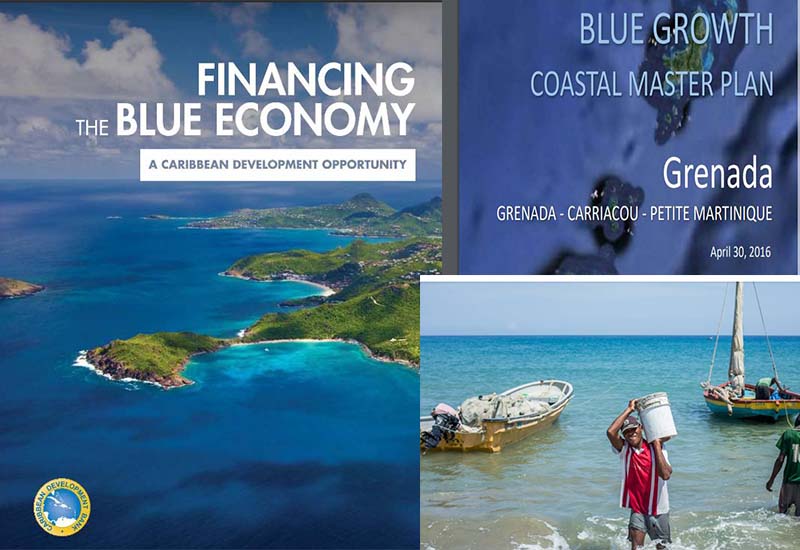CI Shorts: Why the Blue Economy matters to the Caribbean

COP24 - the 24th Conference of the UN Climate Change Framework - convenes in Poland from 2 to 14 December. It is another chance for Caribbean countries and their fellow nations in the small island lobby to push their case for better global attention to climate change goals.
Ahead of this, Caribbean officials joined their global colleagues at a Sustainable Blue Economy Conference in Nairobi in late November.
Proposals to support the Blue Economy are key to the plans of the Caribbean and other small island states. Caribbean Intelligence has been looking at why the Blue Economy matters to the Caribbean.
- Globally, it's estimated that the earth's ocean-based activity generate US$1.5tn in output. This 2010 figure also indicates that the oceans of the world delivered up 31 million jobs. By 2030, the United Nations Development Programme (UNDP) reckons that this income will rise to US$3tn.
- A research paper produced by the UNDP and the Caribbean Development Bank (CDB) suggests four ways for the Caribbean to approach a so-called "Blue Economy" approach.
- Firstly, to manage coastal and marine resources. This means strong policy frameworks, plans to protect marine space and sharing the dividends with coastal communities.
- Next is de-risking blue investments. In other words, reducing the financial hit taken from climate change and getting better financial support for renewable development in the long run.
- Thirdly, improving the ease of doing business in the Blue Economy. This speaks for itself: cutting down the administrative and legal side of new businesses, tax incentives for those building coastal resilience and helping along ventures such as marine passenger transport will be a great boost.
- Finally, there's collaboration. In a nutshell, the nations of the Caribbean share a common sea, so it makes sense to share both the responsibility and the benefits.
- The CDB in its 2018 report on Financing the Blue Economy stated that "while a number of blue economy initiatives can be highlighted within the Caribbean, the scope and scale remains below the potential". The CB looks at the value of the Blue Economy which is dependent on avoiding over-exploitation, enhancing the value of coastal communities, improving resilience to natural disasters and sustainable, inclusive development of coastal resources.
- The CDB report identifies additional sea-related gains, from seafood harvesting and use of marine resources for pharmaceuticals and chemicals to mineral extraction and tourism.
- The Commonwealth, which has been on the Blue Economy case since the term was coined by the Pacific Islands, adopted a charter which applies a number of principles to regenerate and heal ocean resources. This has included a US$100m Blue Economy project for the Caribbean, awarded by the World Bank following Commonwealth and Organisation of Eastern Caribbean (OECS) preparation work. The Commonwealth estimates that 14-27% of the global ocean economy comes from the Caribbean Sea, even though its area only accounts for 1% of the global ocean.
- The Commonwealth reported on what it described as "deeply concerning trends" such as declines in iconic commercial species, including rock lobster and conch. It also highlighted how pollution could threaten human health and tourism and the reduction of coastal habitats.
- In one early concrete example, the Commonwealth helped the Bahamas adopt a new national oceans policy.
- The OECS moved quickly after the 2017 hurricane season to implement the Caribbean Regional Oceanscape Project (CROP). It has US$6.3m in backing from the World Bank to support regional policies, private sector collaboration and improvement of ocean data work.
- In a side meeting at the recently-held Sustainable Blue Economy Conference held in Nairobi, Caribbean, other small island states (SIDS) and UK and Commonwealth sponsors met to look at programmes to develop national maritime economy plans, as well as the development of hydrographic data to help with safe shipping and scientific applications to make the most of the waters around SIDS.
- In a final statement from the Blue Economy conference, the Nairobi Statement of Intent on Advancing the Global Sustainable Blue Economy recommended setting up a Blue Economy Investment Clearing House and Monitoring Facility. The statement said: “A sustainable blue economy builds on unlocking the full economic possibilities of the oceans, seas, lakes, rivers and other water resources through investments that involve effective participation of all relevant people while protecting the resources for present and future generation and ecosystem resilience...Achieving tangible results in these areas will require new, bold and ambitious strategies, mobilisation of significant financial resources, access to technologies and innovations, capacity building and effective governance arrangements.”
Related articles
Building Back Better: Turning goodwill into strategy


